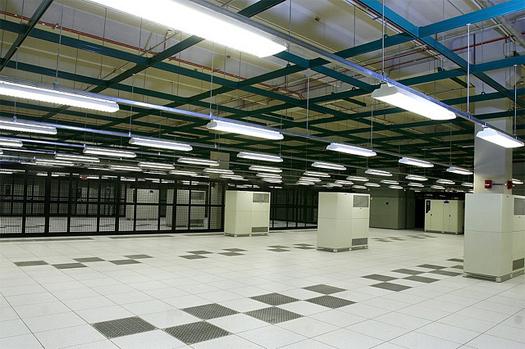
[Inside Terremark’s “NCR NAP” facility in Northern Virginia, a key data center; photographed by flickr user nlaudermilch.]
Alexis Madrigal points out an article in the New York Times this morning which starts to uncover some of the specifics of how the Egyptian government unplugged the internet. Quoting from that article:
Because the Internet’s legendary robustness and ability to route around blockages are part of its basic design, even the world’s most renowned network and telecommunications engineers have been perplexed that the Mubarak government succeeded in pulling the maneuver off.
But now, as Egyptian engineers begin to assess fragmentary evidence and their own knowledge of the Egyptian Internet’s construction, they are beginning to understand what, in effect, hit them. Interviews with many of those engineers, as well as an examination of data collected around the world during the blackout, indicate that the government exploited a devastating combination of vulnerabilities in the national infrastructure.
For all the Internet’s vaunted connectivity, the Egyptian government commanded powerful instruments of control: it owns the pipelines that carry information across the country and out into the world.
As we’ve been continually interested at mammoth in how the digital ephemera of the internet is materially instantiated — both in the infrastructures that it depends on and the global landscapes that it produces — this is a fascinating story, though it is obviously also a sinister story.
Relatedly, if we hadn’t been at the tail end of our winter hiatus when it first ran, I would have definitely linked to Andrew Blum’s brief article from the morning after Egypt turned off the internet, also at the Atlantic Technology channel, in which Blum rightly notes that the efficacy of the Egyptian government’s actions should make us more aware of the importance of who controls the physical infrastructure of the internet. (Of course, Blum would say that! — he’s writing a book on that infrastructure.)

